It has been a long time coming. Rwandan President Paul Kagame, who has the blood of millions on his hands, is going through a tough break-up with the United States. Even Uncle Sam’s friends in the West have deleted him from their “friends” list.
In 1990, as the world was taking a firm stand against Iraq’s invasion and occupation of Kuwait, which incited America’s President George H.W. Bush to boldly proclaim, “This will not stand, this aggression against Kuwait,” Kagame and his U.S.-backed Rwandan Patriotic Front (RPF) were invading Rwanda from neighboring Uganda, and the world was silent. All was good.
And for nearly four years Kagame was permitted to carry out numerous terrorist attacks, ethnic cleansing in northern Rwanda, and violate countless ceasefire agreements reached during the inaptly named “Rwandan Civil War” (the RPF was a military wing of the Ugandan government and invaded Rwanda from Uganda)—all with impunity. He was even allowed to assassinate two world leaders (Rwanda’s President Habyarimana and Burundian president Cyprien Ntaryamira), carry out genocide, and take over the country in a military coup. And still all was quiet, and all was good for Mr. Kagame.
Then Kagame was graciously allowed to invade Zaire, overthrow the government, cause the deaths of millions of people (estimates range from 6-10 million), and pillage the country of its vast natural resources, which cheaply found their way into Western products like cell phones, computers, and other technological equipment.
But in the last couple of months there has been a major policy shift. Military aid has been suspended. Uncle Sam has commented that Kagame could be charged with war crimes. The mainstream media, who have long celebrated Kagame as a great African leader, are now calling him all kinds of nasty names, and saying all kinds of nasty things.
It stands in stark contrast to just a couple of years ago, when the Washington Post published Michael Fairbanks’ leg-humping on February 26, 2010. Fairbanks, who serves as a senior advisor to Kagame on economic development, went through the typical claptrap about Kagame being “inspiring,” having “traditional values,” and bringing prosperity. He glowed with glee when mentioning that Kagame sweeps his own front porch. Fairbanks also got defensive about those “critics [who] say that he foments the war in Eastern Congo and suppresses opposition parties.” For Fairbanks, these critics are “inconsistent” and “their attributions strike me as caricature constructed out of a collage of past African autocrats.” Fairbanks wrote, “I find him to be as inflexible as a Jesuit on moral principles.”
But now, after human rights groups like Amnesty International and Human Rights Watch have noted how Kagame does clamp down on the media, political opposition (e.g. Victoire Ingabire), and even the workd of various human rights groups, and how the UN have noted serious war crimes, and possible genocide in Congo, not to mention that Rwanda is in fact “foment[ing] the war in Eastern Congo,” the press is following the lead of the U.S. government by stating that Kagame is an “isolated autocrat” (Financial Times) with “links to ethnic killings” (Canada’s The Globe and Mail).
The truth stings!
I imagine Kagame is a basket case of emotions right now. After more than twenty years of getting away with being a genocidal, mass-murdering dictator, Kagame is now probably wondering out loud, “What did I do, what did I do?”
He is almost certainly blowing up Secretary of State Hillary Clinton’s private cell phone.
“Hillary, this is Paul. Please call me. I just want to talk.”
“Hillary. Please! I don’t understand. What did I do wrong? Call me. Whatever it is, we can work this out.”
“Okay, I am freaking out now. Why won’t you answer, or return my calls?”
“Fine, I am calling Moscow and Beijing.”
On one hand, President Kagame is not alone. He is not the first murderous dictator to be backed by the United States, and then (for various reasons) dumped. And he won’t be the last.
But on the other hand, nearly all the other dictators are dead.
There is even a clinical name for what Kagame is suffering with: Post-Alliance Stress Disorder (PASD). Just as soldiers experiencing the hardships of being imperial cannon fodder are struggling to cope with their actions and experiences during war is called Post-Traumatic Stress Disorder (PTSD), so too do foreign leaders who struggle with the intoxicating power of being a ruthless tyrant with impunity, but then find themselves isolated on the world stage as the next bogeyman, suffer a similar ailment, as we are now witnessing with Washington’s “Darling Dictator of the Day” (New York Times).
PASD is very real. Many people have suffered from it. And with the world having endured one lonely super power for more than twenty years now—the U.S., which is 5% of the world’s population, makes up more than half of the world’s “defense” expenditures, is the largest arms dealer, has around 1,000 foreign bases, and is operating in anywhere between 70-120 countries at any given time—this puts Americans in a unique position to do something about this ailment.
Here are some accounts of foreign leaders who have struggled with PASD.
Ngô Đình Diệm was President of South Vietnam from 1955-1963 before the Kennedy administration sicced the CIA on him, and he, along with two of his brothers, were assassinated. While in office, Diệm proved to be a ruthless killer and torturer. From his “search and destroy” missions used in the aftermath of the failed Geneva Accords, which U.S. President Eisenhower admitted had to be canceled because “had elections been held, possibly 80% of the population would have voted for Ho Chi Minh, the communist leader,” to the Phu Loi massacre in 1958, and more.
Diệm worked with President Kennedy to effectively imprison the rural peasants of the country under the “Strategic Hamlet Program,” which was made possible when Kennedy increased financial aid to South Vietnam from $50 million to $144 million a year in 1961. The idea behind the pacification program was to round up tens of thousands of people, and close them off from the National Liberation Front, the only real political force in the country with any popular support.
Diệm also worked closely with America’s General Ed Lansdale—a man who, had fate placed him in Germany just a few decades prior, would have had a marvelous career with the Nazi’s—to consolidate his power.
Though Diệm was dispatched quickly with a shot to the head, he briefly suffered from PASD.
Another anti-Communist despot who enjoyed warm relations with Uncle Sam while racking up a terrific human rights abuse record is Dominican Republic President Rafael Trujillo, also dubbed El Jefe (The Boss). But he too succumbed to the dreaded PASD before being assassinated in a CIA-linked plot. Like Diệm, Trujillo got too big for his britches, started rocking the boat with his numerous run-ins with other Latin American leaders, and was proven expendable.
In the aftermath of Trujillo’s assassination President Kennedy made the candid remark that, “There are three possibilities in descending order of preference: a decent democratic regime, a continuation of the Trujillo regime, or a Castro regime. We ought to aim at the first, but we really can’t renounce the second until we are sure that we can avoid the third.” Impregnated in this comment is a very honest explanation of American foreign policy: so long as American interests can be catered to in a “decent democracy,” so much the better. If not, then a brutal dictatorship will work. And the U.S. government won’t renounce that dictatorship so long as an independent alternative is a possibility.
South Korea’s own President Park Chung-hee, who seized power in 1961 via a U.S.-backed military coup, and who led a bloody regime for nearly two decades where political rights were violently suppressed with torture and killings, all the while receiving considerable political, economic and military support from Washington, succumbed to PASD before he was overthrown and assassinated by the director of Korean Central Intelligence Agency (KCIA), which was closely linked to America’s CIA.
Not all leaders who go through PASD get killed in CIA assassination plots. Some, like Uganda’s Idi Amin, or Zaire’s President Mobutu Sese Seko, are just overthrown by another military group found to be more stable and reliable by the American Empire. For Uganda, one U.S.-backed conspirator in the overthrow of Idi Amin was the militant leader Yoweri Museveni, who has been “President” of Uganda since 1986, and who tapped Rwanda’s Paul Kagame as his head of military intelligence before helping him take power in Rwanda in 1994. And it was Museveni and Kagame who celebrated their ascension to power in central Africa with the overthrow of Mobutu, and genocidal invasion and occupation of Zaire, now Democratic Republic of Congo.
This also happened with Panama’s Manuel Noriega, who was also a CIA asset. In 1988 the Senate Subcommittee on Terrorism, Narcotics and International Operations issued a report on Noriega that noted: “It is clear that each U.S. government agency which had a relationship with Noriega turned a blind eye to his corruption and drug dealing, even as he was emerging as a key player on behalf of the Medellín Cartel (a member of which was notorious Colombian drug lord Pablo Escobar).” While the committee’s report suggests it was Noriega who led Washington, nothing could be further from the truth as Uncle Sam’s narcotrafficing was revealed via the Iran-Contra scandal. But Noriega was “arrested” in a high-profile invasion and capture in late 1989, and then stuffed away in prison to keep from revealing any embarrassing secrets. PASD has taken a considerable toll on Noriega as he continues to rot away in prison.
Then there are the examples of Ferdinand Marcos (Philippines), Augusto Pinochet (Chile), Suharto (Indonesia), “Baby Doc” Duvalier (Haiti), Zine El Abidine Ben Ali (Tunisia), Ali Abdullah Saleh (Yemen), and Hosni Mubarak (Egypt), which were backed by Washington through the worst of their days. Yet when it became clear that domestic uprisings would topple them, Uncle Sam backed off, and began looking for new leaders to do their bidding, unconcerned with how their former allies would get through bouts of PASD.
For some PASD can take a deadly turn.
Romania’s President Nicolae Ceauşescu ruled the roost for more than twenty years, with Washington’s blessings of course, and proved to be one of the most ruthless dictators in Eastern Europe since Joseph Stalin. However, a popular revolution in 1989 brought it all down, and when Washington abandoned him to struggle with PASD, he and his wife were shot by a firing squad.
And, as just one final example, though we could certainly go on, we must look at Iraq’s former president, Saddam Hussein. The CIA helped the Ba’ath Party come to power in the 60’s, and even before Hussein seized power for himself, the U.S. and U.K governments were noting his rise. Diplomatic cables between the two countries often spoke glowingly about how “if only one could see more of him, it would be possible to do business.” Declassified cables also reveal that the U.S. and U.K. saw Saddam as a “presentable young man” who was making an “emergence into the limelight.” Perhaps more revealing was a 1975 State Department memo that refers to Saddam as a “rather remarkable person”, and “ruthless.” Henry Kissinger’s response to the latter comment was: “That was to be expected anyway when they cleared the Kurdish thing.” Of course, that “Kurdish thing” was the “ruthless” oppression directed against the Kurdish population.
And after the 1979 overthrow of Uncle Sam’s favorite Iranian dictator, Shah Pahlavi (who the CIA brought to power in coup in 1953), the U.S. backed Iraq’s invasion of Iran the following year. In the infamous chemical warfare attack on the Iraqi town of Halabja, which Americans would later shed crocodile tears over, the U.S. not only knew about it, but publicly blamed it on Iran. That is, until Saddam invaded Kuwait in 1990, and Washington broke the Iraqi president’s heart by turning on him. Then it became fashionable to shout, “He gassed his own people!”
Even after the Persian Gulf War of 1991, Saddam was allowed to commit one more last massive human rights abuse by putting down the violent uprisings in the south that was threatening to overthrow the regime. While U.S. President George Bush openly called for the revolts, Saddam was permitted to use lethal force to remain in power because what President Bush had in mind was an internal military coup to replace Saddam, but not the system. The incident was famously remarked upon in the New York Times by columnist Thomas Friedman when he wrote that “for a variety of reasons the Bush Administration was prepared to live with the Iraqi leader” because “the fact is that President Bush has been ambivalent about Mr. Hussein’s fate since the day the war ended.” The reason we are told, is that the Persian Gulf War “fought to restore the status quo […] And, as every American policymaker knows, before Mr. Hussein invaded Kuwait he was a pillar of the gulf balance of power and status quo preferred by Washington.” So while “Washington [preferred to] have the best of all worlds: an iron-fisted Iraqi junta without Saddam Hussein,” wherein “Mr. Hussein’s generals [would attempt] to bring him down,” this didn’t happen. What happened was the U.S. sided with Saddam against the uprising, and as noted, the butchery that followed due to U.S. support was still used to demonize Saddam in the years to come.
But when Bush’s son came to power a decade later, the Iraq War was waged, more than a million Iraqis killed, and Saddam was detained. For three years Hussein’s PASD worsened considerably—he had been struggling with it since the summer of 1990—before he was gruesomely executed by hanging.
For now Rwanda’s President Paul Kagame is still in power, but PASD is surely eating him up. Will he go the quick and painless way of Diệm, Trujillo and Park? Will Washington abandon Kagame to domestic retribution like Hussein and Ceauşescu? Or could he possibly get locked away in a jail like Noriega? If he is lucky he can just retire at the Fletcher Memorial Home for incurable tyrants and kings like Pinochet, Suharto, Marcos, Ben Ali, Saleh, et al.
Much like PTSD, the only sensible cure for PASD is to get at the root of the problem: imperialism, war, and authoritarianism. When there are no more empires, and no more wars, and when democracy becomes a functioning system for the world’s economies and polities, then not only will soldiers cease to endure stress disorders associated with the nature of their work, but so too will America’s darling dictators not suffer the heartache of falling from grace. This seems like a tall order to fill, but it comes with the added bonus of going a long way to lessening global human rights abuses, as well as the danger posed by nuclear weapons and environmental degradation (which often goes along with war and imperialism as cheap labor and resources are sought after). And while this campaign, Cure PASD!, may not be as trendy and appealing as Free Tibet, Save Darfur, Stop Kony, Free Pussy Riot, etc cetera—the common denominator of these campaigns being ineffective slacktivism that distracts Americans from their own condition, and human rights abuses their government is responsible for—it could actually make a difference!

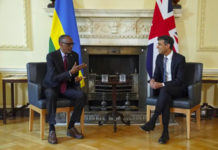
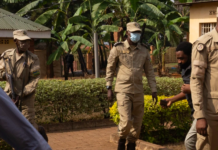
























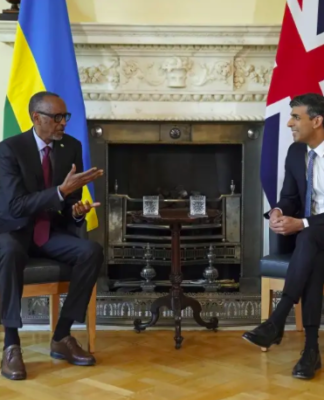
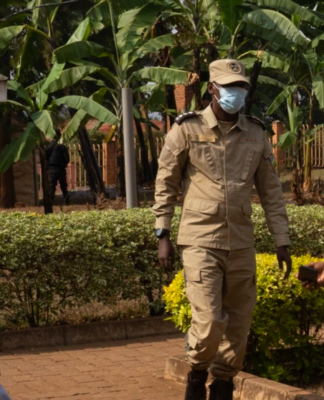
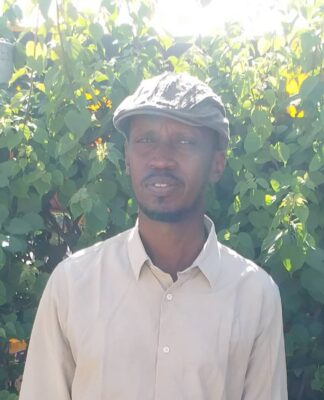































That is the consequence of believing in human beings. They are deceitful. Let only believe in our allmighthy God not humans… But i’m wondering if PASD feels like when it is broken between two people (boy and girl loving each other)… Anyway you have to learn something after that( get experience). For example: i will never trust humans, i will never trust men or women…Also i think you have to suffer from victimology ( that state which make you feel always as a victim of others’actions)and isolation ( need to hide oneself from others)…Also, you can repent and feel guilty of your actions and ask for forgiveness to God first and to human after and accept all the judgement and punishment with humility.This is a very good state of mind which can save someone from this PASD and Chaos and suicid and give him peace of mind which, i think is the way to a better future life and forgiveness or pardon. But it is not easy to condemn oneself as we all always look for self defense thoughts and mechanisms. But what is sure is that when you are really innocent, you can bear all the charges and condemnation against you with dignity and ease.